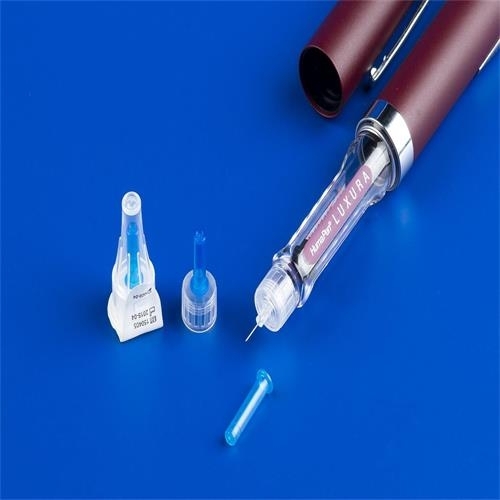Let’s talk insulin.
Mention the “I word” with a reduced carb dieter, or possibly a clean eater, and you will virtually discover them turn white as the blood drains from their face in abject horror.
To them, insulin will be the big bad guy from the nutrition world.
They refer to insulin as “the storage hormone” and think that anywhere of insulin within the body will immediately make you lay down new fat cells, put on weight, and lose any a higher level leanness and definition.
Fortunately, that’s not quite the case.
Actually, while simplifying things with regards to nutrition and training can often be beneficial, it is a gross over-simplification in the role of insulin within your body, as well as the truth is entirely different.
Far from to be the dietary devil, insulin is really absolutely nothing to be worried of whatsoever.
What Insulin Does
Describes with the insulin worrier’s claim (that insulin is often a storage hormone) is true Body of insulin’s main roles is to shuttle carbohydrate that you simply eat across the body, and deposit it where it’s needed.
That doesn’t mean that the carbs consume are stored as fat though.
You store glycogen (carbohydrate) within your liver, good tone muscles cells and your fat cells, and this will only get shoved into those pesky adipose sites (fat tissue) once the muscles and liver are full.
Additionally, unless you’re in a calorie surplus, you simply cannot store excess fat.
See it by doing this –
Insulin is much like the staff in a warehouse.
Calories will be the boxes and crates.
You could fill that warehouse fit to burst with workers (insulin) however, if there aren’t any boxes (calories) to stack, those shelves won’t get filled.
So if you feel burning 3,000 calories daily, and eating 2,500 calories (or even 2,999) the body can’t store fat. No matter if dozens of calories result from carbs or sugar, you shall not store them, because your body demands them for fuel.
Granted, this wouldn’t be our planet’s healthiest diet, but as far as science can be involved, it comes to calories in versus calories out, NOT insulin.
It Isn’t JUST Carbs
People fret over carbs keeping the biggest effect on levels of insulin, and how carbohydrate (particularly in the simple/ high-sugar/ high-GI variety) spikes levels of insulin, but a lot of other foods raise insulin too.
Pure whey protein, as an illustration, is especially insulogenic, and may create a spike, particularly if consumed post workout.

Dairy products too will have a relatively large effect due to natural sugars they contain, and also fats can raise insulin levels.
Additionally, the insulin effect is drastically lowered to eat an assorted meal – i.e. one that contains carbs plus protein and/ or fat.
This slows the digestion and the absorption from the carbs, bringing about an extremely lower insulin response. Add fibre in to the mix too, as well as the raise in insulin is minimal, so even though i was concerned about it before, the answer is easy – eat balanced, nutrient-dense meals, and you do not need to worry.
Insulin Builds Muscle
Rediscovering the reassurance of the concept of insulin as being a storage hormone, and the notion who’s delivers “stuff” to cells:
Fancy taking a guess at what else it delivers, beside carbohydrate?
It delivers nutrients to your muscle cells.
Therefore, should you be forever attempting to keep insulin levels low for fear of fat gain, it’s highly unlikely you’ll get ripped optimally. It’s for this reason that I’d never put clients looking to get ripped and make lean gains on a low-carb diet.
No Insulin Can continue to Equal Fat Storage
As opposed to those low-carb diet practitioners again, you are able to store fat when levels of insulin are low.
Dietary fat when consumed in the caloric surplus is in fact transformed into excess fat tissue a lot more readily than carbohydrates are, showing once again, excess weight or fat reduction depends upon calories in versus calories out, not insulin levels.
Why low-Carb (and Low-Insulin) Diets “Work”
Many folk will point for the scientific and anecdotal proof low-carb diets being employed as reasoning to keep insulin levels low.
I cannot argue – a low-carb diet, where insulin release is kept as small as possible can simply work, however this has hardly any related to the hormone itself.
Whenever you cut carbs, you mostly cut calories, putting you in to a deficit.
Additionally, the average joe will eat more protein plus much more vegetables when going low-carb, so that they feel far fuller and consume less food. Plus, protein and fibre have a higher thermic effect, meaning they will really use up more calories through the digestion process.
Net profit: Insulin – Not So Bad After All
You don’t need to concern yourself with insulin in the event you –
Train hard and frequently
Have a balanced macronutrient split (i.e. ample protein and fat, and carbs to match activity levels and private preference.)
Are relatively lean.
Eat mostly nutrient-dense foods.
Don’t have any issues with diabetes.
You can still store fat with low levels of insulin, and you’ll burn up fat and make muscle when insulin occurs.
Taking a look at insulin in isolation as either “good” or “bad” really is a prime instance of missing the forest for that tress, so take it easy, and let insulin do its thing when you pinpoint the main issue.
For additional information about Buy Insulin Injections take a look at our website.
